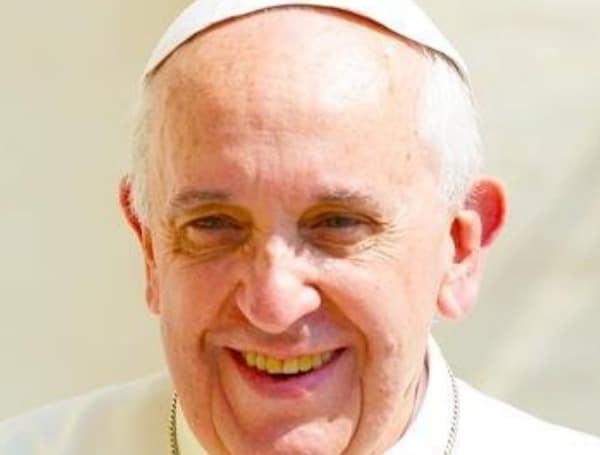Mary Margaret Olohan

Following years of consultations, Pope Francis has revised the Vatican’s Code of Canon Law to push religious leaders to address sexual abuse scandal within the Catholic Church.
“The new text introduces various changes to the law currently in force and imposes sanctions on some new offenses,” Pope Francis explained, the Vatican said in a press release.
“In order to respond adequately to the needs of the Church throughout the world,” the pope said, “it appeared evident that the penal discipline promulgated by St. John Paul II on January 25, 1983 in the Code of Canon Law needed to be revised, and that it required modification in such a way as to allow Pastors to employ it as a more agile salvific and corrective tool, to be applied promptly and with pastoral charity to avoid more serious evils and to soothe the wounds caused by human weakness.”
The pope’s revisions broaden the church’s definition of sexual abuse, according to the New York Times. The revised Code of Canon Law acknowledges that clergy might use their leadership roles to victimize not only children, but also adults.
“Many have been the damages caused in the past by the lack of understanding of the intimate relationship that exists in the Church between the exercise of charity and the performance of punitive discipline, whenever the circumstances and justice require it,” Pope Francis wrote in the introduction to the new text, according to a translation from Catholic news outlet the Pillar.
“This way of thinking –experience teaches it– carries the risk of temporizing with behaviors contrary to discipline, for which the remedy cannot come only from exhortations or suggestions,” he continued. “This attitude often carries with it the risk that, with the passage of time, such ways of life crystallize, making correction more difficult and in many cases aggravating the scandal and confusion among the faithful.”
The new text requires religious leaders within the Catholic Church to impose punishments for offenses, even minor ones, where old text ultimately left punishment up to the religious leaders’ judgment, according to the Pillar. If a member of the Catholic Church commits a canonical crime by abusing his office, this person should be punished more severely, the text said.
The text also directly notes the presumption of innocence until guilt is proven in canon law, according to the Pillar.
The publication also reported that the revised Code of Canon Law changed canonical statute of limitations to make sure that priests who have been accused of misconduct will not have to wait lengthy periods of time without real movement — under the revisions, the clock can run out 0n imposing penalties on a priest if the process takes too long.
Support journalism by clicking here to our gofundme or sign up for our free newsletter by clicking here
Android Users, Click Here To Download The Free Press App And Never Miss A Story. It’s Free And Coming To Apple Users Soon.
Content created by The Daily Caller News Foundation is available without charge to any eligible news publisher that can provide a large audience. For licensing opportunities of our original content, please contact licensing@dailycallernewsfoundation.org.
